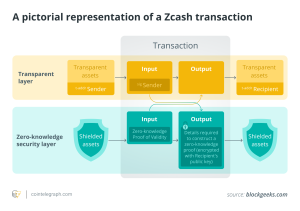From National Threat to Opportunity, How Regulation is Changing With Crypto.
3 min readAmid one of the worst crypto winters, polls and research indicate that crypto enthusiasm is still high.
Public opinion about cryptocurrencies like Bitcoin continues to trend positively. Polls from The Ascent, made in May 2022, suggest crypto could become a significant political force moving forward.
Analysis from a StarkWave survey in March 2022 found that 53% of American respondents believe crypto will be ‘the future of finance.’ Within the 25-34 age range, this figure swelled to 68%.
A late September report from VC firm Haun Ventures found somewhat similar sentiment even amid bear markets for all of 2022. 72% of crypto holders in the poll, who lived in one of four major U.S. Cities, said they owned digital assets because “they want an economic system that is more democratized, fair, and works for more people.”
Notably – Haun Ventures wrote, “voters are less likely to support candidates perceived as standing in the way of a decentralized internet.” These findings are notable as cryptos like Ethereum and stablecoins help drive DeFi.
As public sentiment grows warmer towards crypto, surprisingly, some national governments might not be far behind. For example, Colombia’s newly-minted President, Gustavo Petro, explained in 2021 how “virtual currency is pure information and therefore energy.”
To the ire of some within the European Parliament, French regulators approved the Binance crypto exchange in May 2022.
Will The U.S.A Be The Global Leader In Crypto Regulation?
Some speculate national governments could be looking to the United States on how to handle cryptocurrencies. Notably, two U.S. Senators announced the Responsible Financial Innovation Act in early June 2022, which proposes a long list of crypto regulations and attempts to clear up lingering questions about how to handle the industry.
The legislation came just a couple of months after President Joe Biden announced a first-of-its-kind crypto executive order, spearheading a ‘whole government approach’ towards regulation.
In an accompanying fact sheet, the White House acknowledged crypto was here to stay and that “…digital assets can also provide opportunities for American innovation and competitiveness and promote financial inclusion.” A more detailed framework followed in September 2022, marking a busy Fall 2022 for crypto-focused activity in the hallways of Washington, D.C.
In early October, Senators Cynthia Lummis and Marsha Blackburn revised the Cybersecurity Information Sharing Act, which, if passed, would also open up opportunities for crypto-focused companies to report cyber threats to government agencies directly.
Around the same time, Senator Bill Hagerty introduced the Digital Trading Clarity Act of 2022, designed to help cover crypto exchanges from “certain” SEC enforcement actions.
Crypto regulation has long been a controversial topic. Still, many argue clarity is needed to help attract more users to the space and turn the vibrant digital asset world into a more significant economic engine.
Why Regulation Could Be The Biggest Rocket Fuel For The Crypto World
Brookings Institution Senior Fellow Aaron Klein asserts that crypto-focused regulation that strikes the right balance can help protect long-term investors, help crypto companies innovate, and cut down on fraud.
ONANA senior market analyst Edward Moya argued in March 2022 that the overall crypto market cap at the time could double within two years if successful crypto regulation came into force in the United States.
The United Arab Emirates and the Philippines have already worked to pass legislation that provides apparent regulatory oversight – ushering in opportunities for the establishment of ‘ecozones’ where blockchain and crypto-focused entities could set up and experiment in a business-friendly environment.
The cross-border nature of cryptocurrencies means any sound regulatory approach requires cohesion between governments, public officials, private industry professionals, and crypto experts.
Entities like the P3 Network continue to work towards ‘addressing the crypto question’ by unifying public and private sector officials together to understand how disruptive technology can support their goals of stable grids.
Counting industry leaders like Solidus Labs, IOHK, and Prime Trust as contributors, the P3 Network offers region-specific crypto roundtables with access to a U.S. Congressional Technological Advisory Group that provides recommendations to committees, companies and nations with investment opportunities through P3 Network venture arm P3 Captial.
Learn more about the Miami-based thought leadership platform by visiting the P3 Network website.






